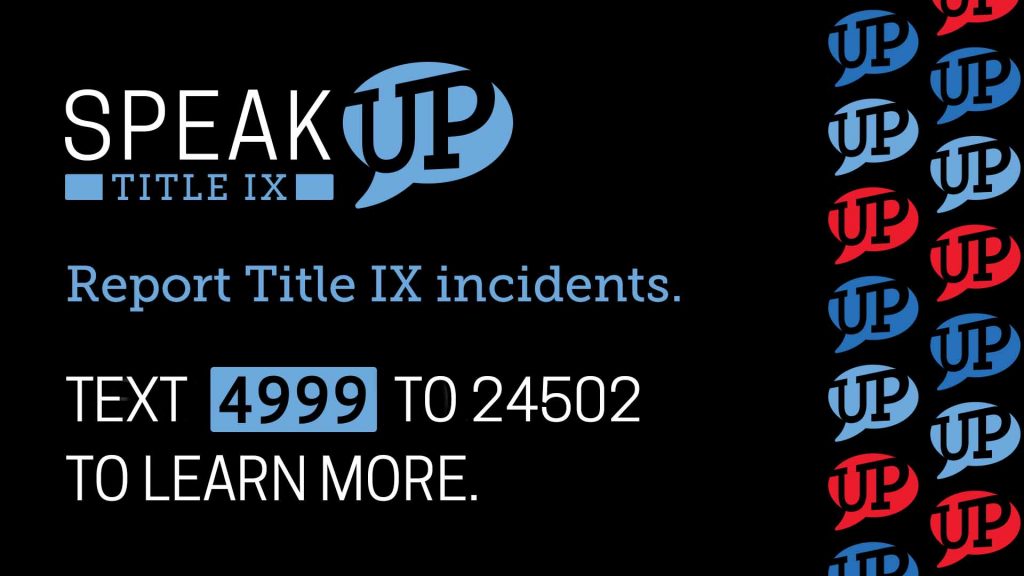The U.S. Department of Education, under Betsy DeVos’s leadership, proposed to amend regulations of Title IX of the Education Amendments of 1972, which federalizes more Title IX procedures, including a narrow definition of sex discrimination and procedures for mandatory cross-examination.
“I don’t think mandating live hearings with cross-examination is going to help universities or students,” Executive Director of Equity & Compliance and Liberty’s Title IX Coordinator Nathan Hopkins said.
While Hopkins and President Jerry Falwell see much of the proposal as a win for sex discrimination policy, the proposal’s requirement of institutions to implement a vigorous cross-examination process is worrisome.
“We want to maintain a safe and inclusive learning environment, which requires encouraging students to speak up when they have a concern. Everyone in our office spends a lot of time helping students understand our policy and process. From there, students can make an educated decision, but this new proposal from the Department would likely discourage most students from participating,” Hopkins said.
Hopkins is not in favor of the proposed cross-examination process. The proposal requires schools that receive federal money to provide in their grievance procedure a live hearing in which a “decision-maker” serves as an unbiased facilitator of discussion.
“At the hearing, the decision-maker must permit each party to ask the other party and any witnesses all relevant questions and follow-up questions, including those challenging credibility,” the proposed amendments say.
Both the accuser and the accused must not only face each other, but they also must have an “advisor” who cross-examines the other party. “If a party does not have an advisor present at the hearing, the recipient (the school receiving federal money in accordance with Title IX regulations) must provide that party an advisor aligned with that party to conduct cross-examination,” the proposed amendments say.
If this proposal is enacted, Liberty would most likely have to pay trained professionals, like lawyers, to cross-examine students in front of a public hearing on campus.
“Students should not have the burden of deciding whether they want to participate in what is essentially a trial when it comes to their access to education,” Hopkins said. Hopkins is content with the process that Liberty
currently has in place.
Hopkins said that requiring students to be cross-examined by trained professionals, in front of teachers, classmates and strangers would discourage victims of sexual assault to come forward. Falwell expressed similar concerns in a public comment published Jan. 24, 2019.
“Mandating costly adversarial hearings in every sexual harassment proceeding … would likely dissuade complainants from coming forward, limiting the ability of campus administration to foster a safe and inclusive learning environment,” Falwell said in a public comment.
Sexual assault is already one of the most unreported crimes in the United States. According to the world’s largest anti-sexual violence organization RAINN, 3 of 4 sexual assaults are not reported to the police. Eighty percent of sexual harassment cases on college campuses already go unreported.
“Reporting can be re-traumatizing, empowering, or both. Part of healing is regaining a sense of control after having lost it in the assault. But when someone makes a report, they lose control again when systems take over. People who have been victimized may not want to relive the trauma by having to talk about it publicly,” Elizabeth Bernstein of the Wall Street Journal said in September 2018.
In 2018, the U.S. 6th Court of Appeals ruled, saying that without this process of cross-examination, the accused was stripped of their Due Process rights.
“(Universities) must give the accused or his agent the opportunity to cross-examine the accuser,” Doe v. Baum (2018) says.
Additionally, DeVos’s proposal would change the standard for what is considered sex discrimination on college campuses from a broad definition to a narrow definition, decided by the Supreme Court.
“(Sexual harassment means) unwelcome conduct on the basis of sex that is so severe, pervasive, and objectively offensive that it effectively denies a person equal access to the recipient’s education program or activity,” the proposed amendments say.
Schools who receive money from the federal government would be required to have Title IX offices who hold to the same uniform and clear definition of sex discrimination. Hopkins said that institutions were previously required to police broad and vague standards and supports the language drafted in the proposal when it comes to the definition of sexual
harassment.
“We support the department’s adoption of the ‘objectively offensive’ standard for sexual harassment,” Falwell said in a public comment. “By redefining sexual harassment to only include conduct ‘that effectively denies a person equal access to the recipient’s education program or activity,’ the department successfully reestablishes the original purpose of Title IX, and clarifies the obligations of recipient institutions.”
The U.S. Department of Education will take other public comments from universities and propose another amendment in the future.

